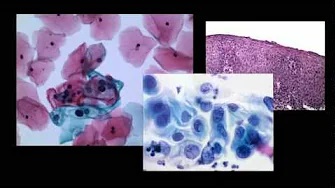Document Type
Article
Publication Date
2-16-2020
Abstract
BACKGROUND: Inflammatory bowel disease (IBD) is characterised by acute intestinal mucosal inflammation with chronic inflammatory features. Various degrees of mucosal eosinophilia are present along with the typical acute (neutrophil-predominant) inflammation. The effect of intestinal eosinophils on IBD outcomes remains unclear.
METHODS: This is a retrospective study. Archived intestinal mucosal biopsy specimens of treatment-naïve IBD patients were examined by two pathologists. The number of eosinophils per high-power field was counted, and the mucosal inflammation was classified according to the eosinophilic inflammatory patterns. Clinical outcomes during the follow-up period were recorded.
RESULTS: 142 treatment-naïve IBD patients were included. Mean age was 39 years. 83% of patients had ulcerative colitis, and median follow-up was 3 years. 41% of patients had disease flare(s) and 24% required hospitalisation. Eosinophil count was not associated with risk of disease flare or hospitalisation. Patients with neutrophil-predominant inflammation (>70% neutrophils) had greater risk of disease flare(s): 27(55%) versus 24(36%) and 7(28%) in patients with mixed and eosinophil-predominant inflammation, respectively (p=0.04). Overall, patients with neutrophil-predominant inflammation were more likely to have a disease flare; HR: 2.49, 95% CI (1.0 to 5.6). Hospitalisation rate was higher in patients with neutrophil-predominant inflammation: 17(35%) compared to 17(19%) in patients with eosinophil-rich inflammation (p=0.04). Kaplan-Meier analysis showed higher flare-free survival in patients with eosinophil-predominant inflammation compared to mixed and neutrophil-predominant inflammation.
CONCLUSION: IBD patients with eosinophil-predominant inflammation phenotype might have reduced risk of disease flares and hospitalisation. Larger prospective studies to assess IBD outcomes in this subpopulation are warranted.
Recommended Citation
Alhmoud T, Gremida A, Colom Steele D, Fallahi I, Tuqan W, Nandy N, Ismail M, Aburajab Altamimi B, Xiong MJ, Kerwin A, Martin D. Outcomes of inflammatory bowel disease in patients with eosinophil-predominant colonic inflammation. BMJ Open Gastroenterol. 2020 Feb 16;7(1):e000373. doi: 10.1136/bmjgast-2020-000373. PMID: 32128230; PMCID: PMC7039632.

